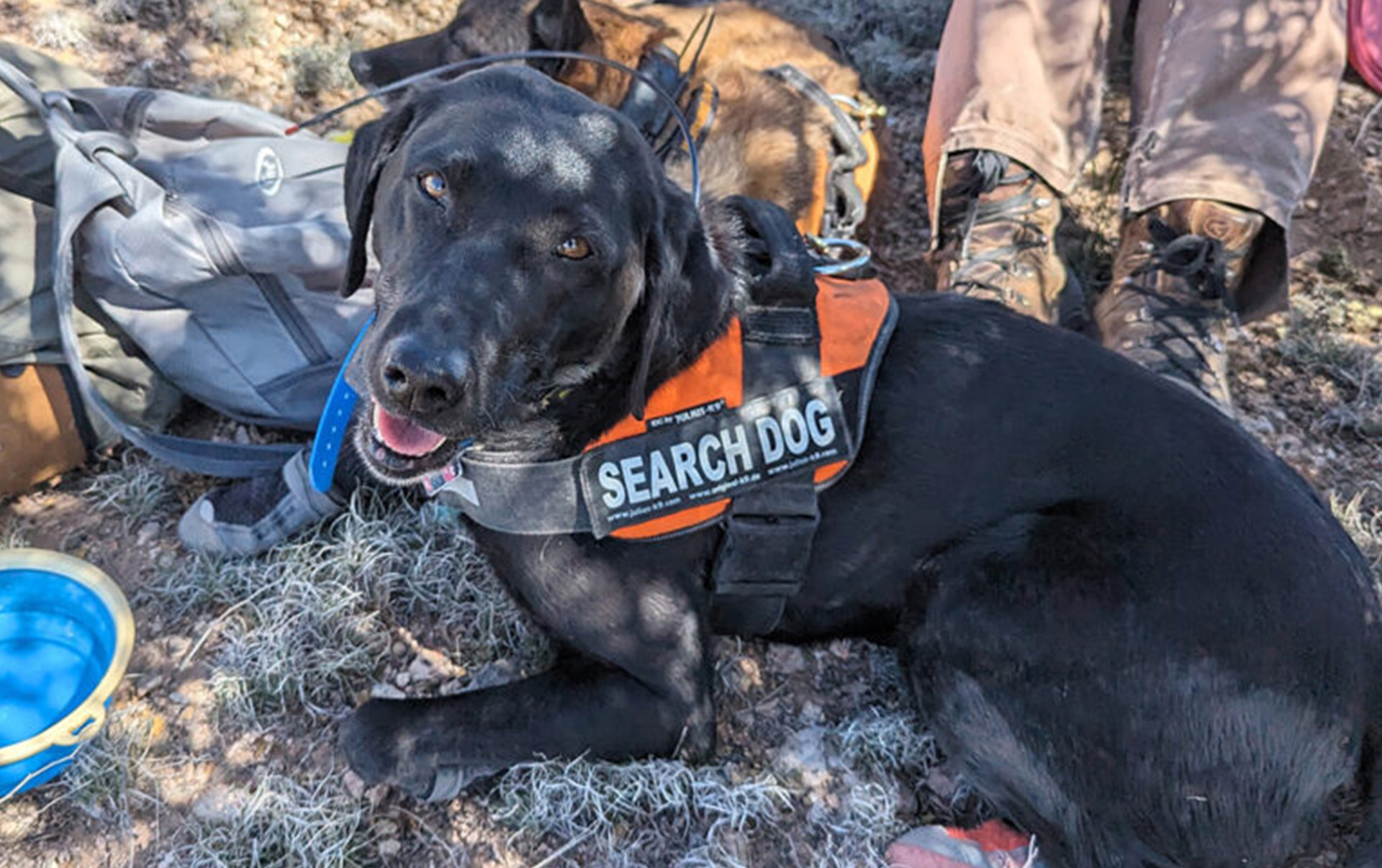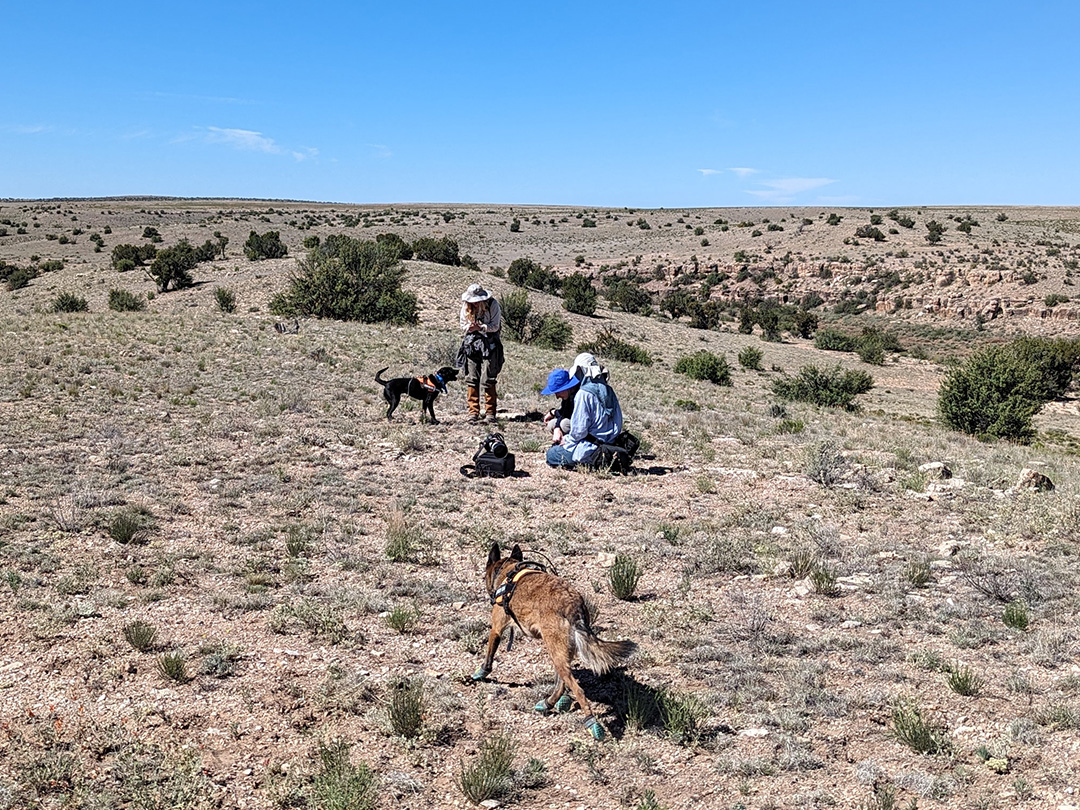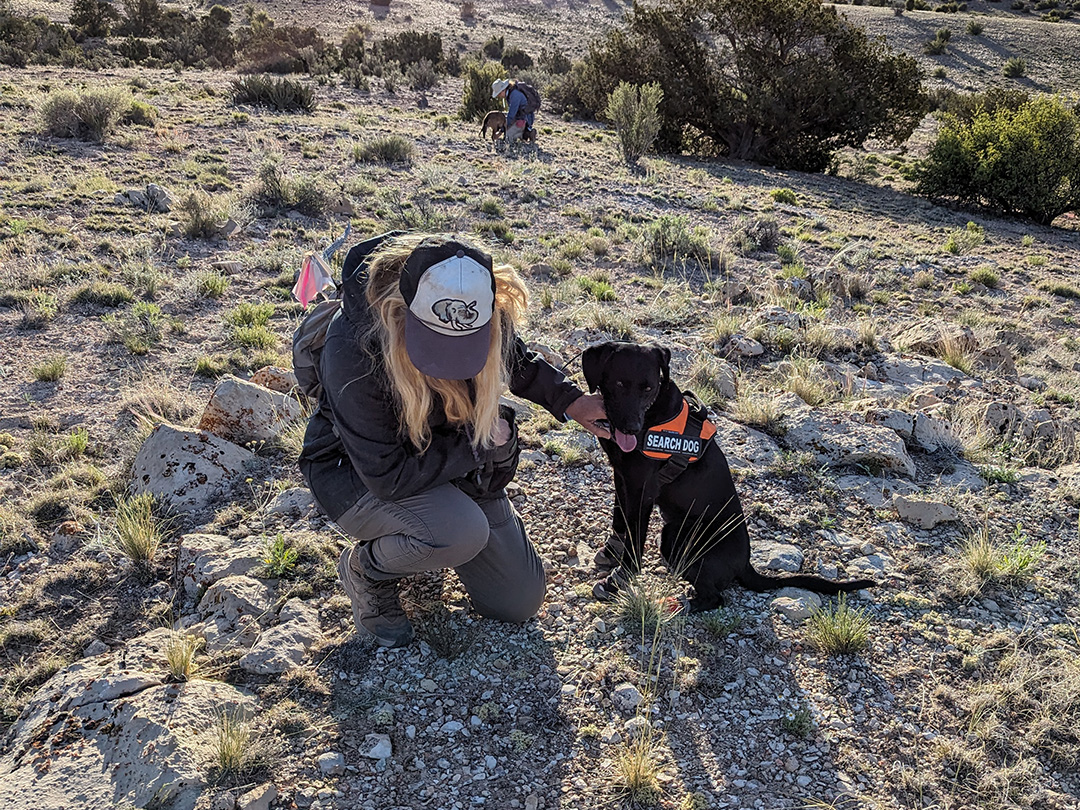In 2022, Desert Botanical Garden introduced a pair of scientists with paws who are helping researchers with a major conservation project that involves endangered Southwestern plants.
Circe and Muon are two specially-trained dogs from K9inscentive, a California-based professional ecology detection training center led by Lauralea Oliver. For the past couple of years, Garden researchers have taken research canines with Lauralea to the field to locate the rare and endangered Canelo Hills ladies’-tresses orchids (Spiranthes delitescens).
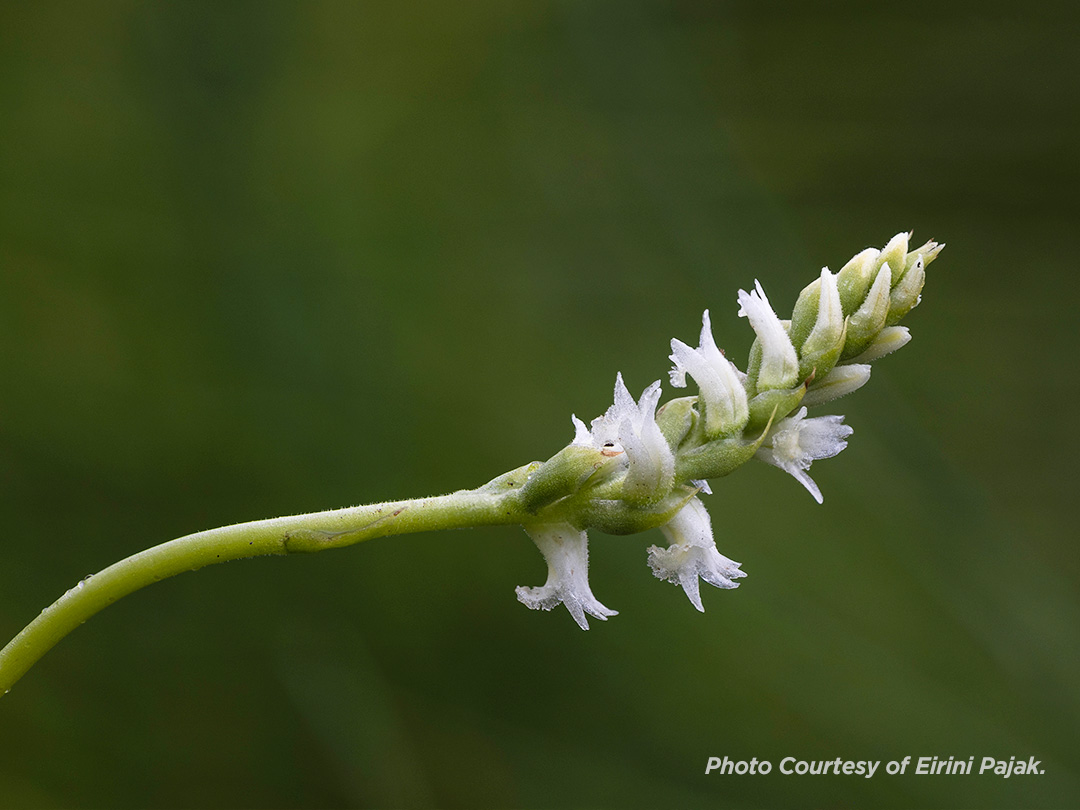
The orchids grow in wetlands with dense vegetation in southern Arizona that make it extremely difficult for humans to find unless they are in bloom. With the help of the dogs, Garden researchers have been able to find these rare orchids more easily. Garden scientists can also collect seeds from these endangered orchids to propagate more of them and store them in the Garden’s seed lab.
“During the two surveys conducted in summers of 2022 and 2023, despite all of the heat and humidity amongst the dense vegetation, the dogs were able to find numerous orchids that humans were unable to find,” said Garden Conservation Collections Manager Steve Blackwell.
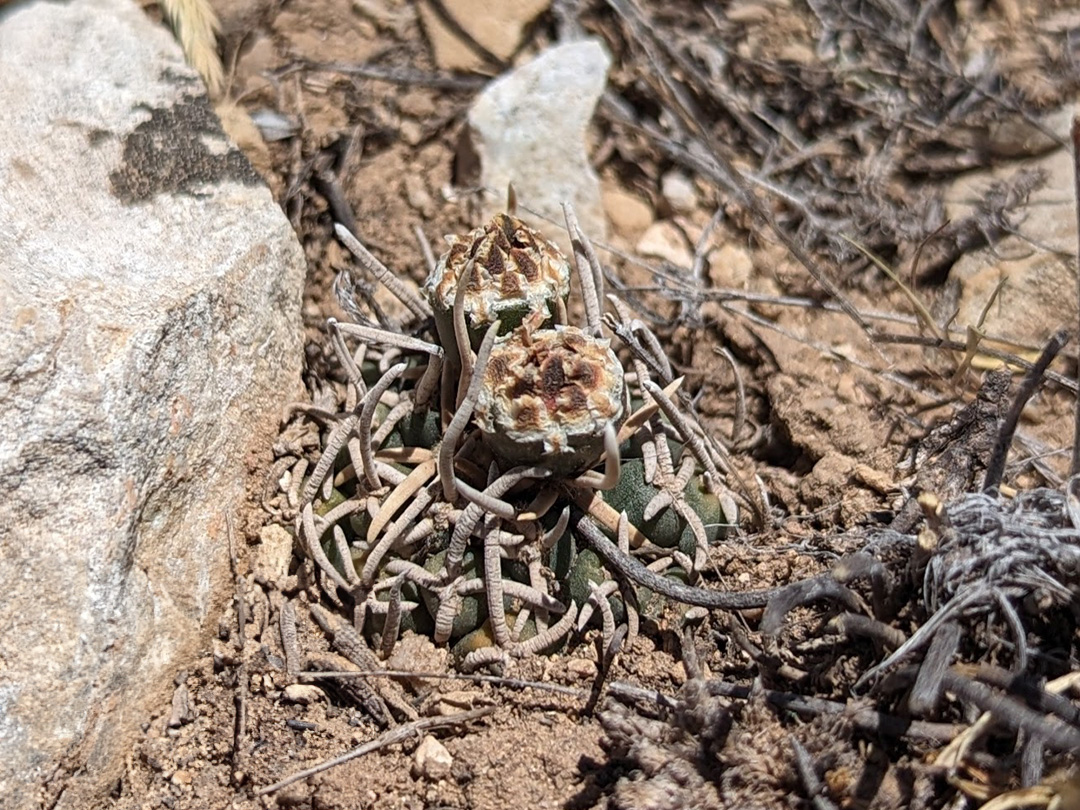
After the success of the orchid project, Garden researchers recruited the help of Circe and Muon to detect three Pediocactus taxa in northern Arizona.
Similar to the endangered orchids, Pediocactus are tiny. One of the species only grows to be 1-2 inches in diameter and blends into its rocky habitat. The cactus also tends to shrink below the soil line to conserve water, making them even harder to find. It also is very difficult for humans to locate when they aren’t flowering. The research canines were trained to sniff other Pediocactus species before heading out to the field.
In May, Garden scientists as well as the team from K9inscentive took their first trip with the support of Babbitt Ranch in northern Arizona where there are small populations of one of the target cactus. Because the scolding summer heat could affect the dogs, the team started at 4 a.m.
“Despite them being trained on a different species of cactus, by the end the dogs were able to find these tiny cactus amongst the similar looking rocks and grasses that us humans were not able to find,” Blackwell said.
Garden scientists will be taking the research canines back out on the field in the fall to survey for another endangered Pediocactus and hope to improve upon the results they had in the spring.
